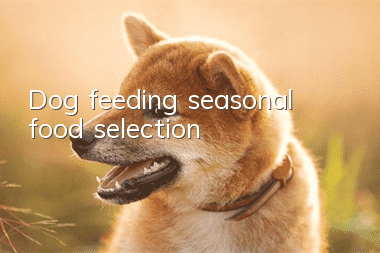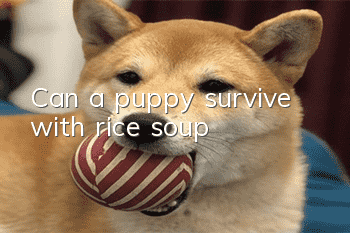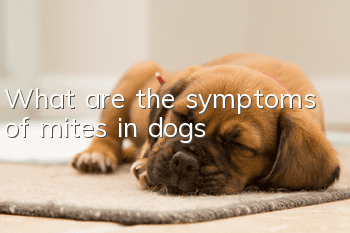Dog feeding, seasonal food selection

As the seasons change, dogs’ caloric needs also vary. When raising dogs indoors and outdoors, dogs have less heat needs in the summer and more in the winter.
Don’t just feed the same kind of food throughout the year. Change the food according to the season and physical condition, so as to ensure the healthy growth of your dog.
In the season when it starts to get warmer, food intake is 10% less than in winter (spring)
After winter, too many calories are no longer needed, but the dog’s appetite will not drop sharply, so be careful not to let it eat too much.
Snacks are the root cause of obesity. If you want to give your dog snacks, you can only feed them jerky and the like, and they must be counted as part of the food intake. Food intake should also be reduced to 90% of winter food intake.
As the temperature and humidity increase, food is prone to mold. It should be placed in a sealed container and stored in a ventilated place.
In the season when appetite decreases, weigh yourself frequently (summer)
Dogs are very afraid of heat, and their appetite will decrease in summer. This is a normal physiological phenomenon of reducing fat to survive the heat, so there is no need to worry.
But your dog should be weighed once a month. If the weight decreases by 10%, it means there is something wrong with his body.
If your dog’s appetite is still very strong in summer, you must prevent it from getting fat. A sharp reduction in food intake will make it very irritable, so mixing in low-calorie foods will help control food intake reasonably.
Prevent weight gain during the season of strong appetite (autumn)
Not only humans, but dogs also have a strong appetite in autumn. This is a normal physiological phenomenon to reserve subcutaneous fat for winter. If you eat too much, you will still gain weight. If your dog's weight rises sharply and you can directly feel its fat, you should lose weight in time. There is no need to reduce food intake when losing weight. As long as you mix some cabbage into dog food, you can adjust high-calorie food to low-calorie food.
When the weather is good, letting it do a lot of exercise will also help prevent it from becoming obese.
Pay attention to replenishing water during the season when appetite is strong (winter)
In winter, a large amount of subcutaneous fat accumulates to maintain body temperature. The puppy's appetite is extremely strong, and the amount of exercise also increases, so its food intake should be gradually increased.
Eating too much can cause obesity, so you should weigh it regularly and perform fat testing.
In addition, heating will dry out the indoor air, so fresh water should be prepared frequently to prevent it from drinking.
- How to train a dog to be less protective of food? Tips for training a dog to be less protective of food!
- What can’t a Dalmatian dog eat?
- Things to note when raising Border Collies
- Do you understand the consequences of punishing your pet?
- Causes and prevention methods of pet obesity
- What should dogs eat to make their hair grow faster?
- How to keep dogs warm in winter
- Pekingese dog’s morphological characteristics and living habits
- Does Lang Qing recognize his master?
- Early symptoms of Samoyed canine distemper



